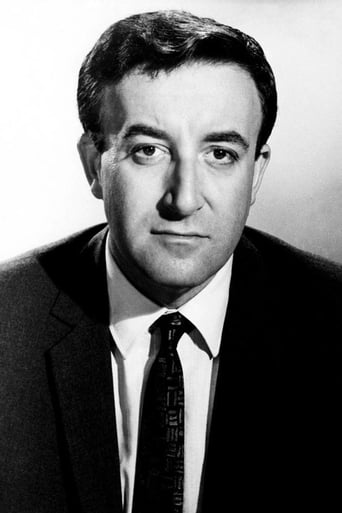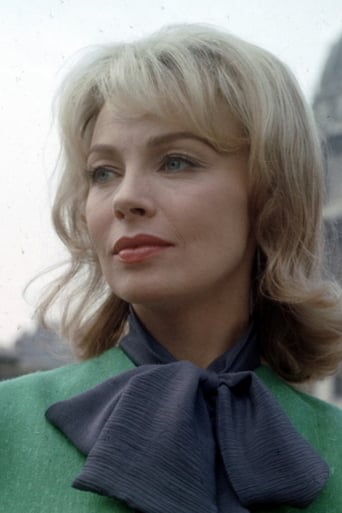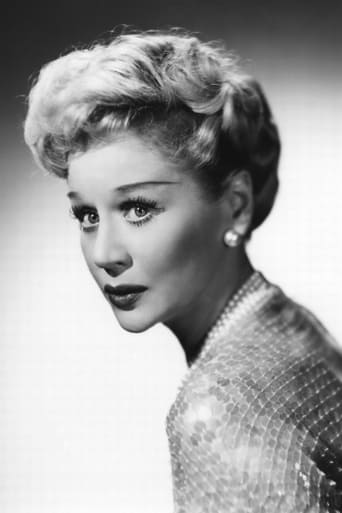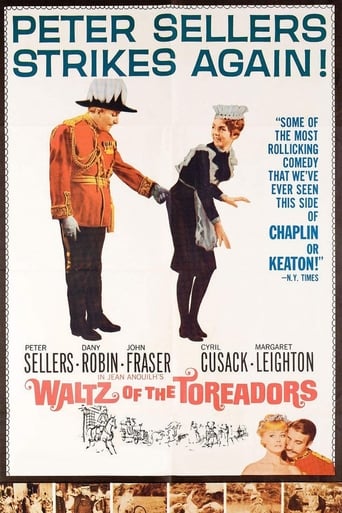
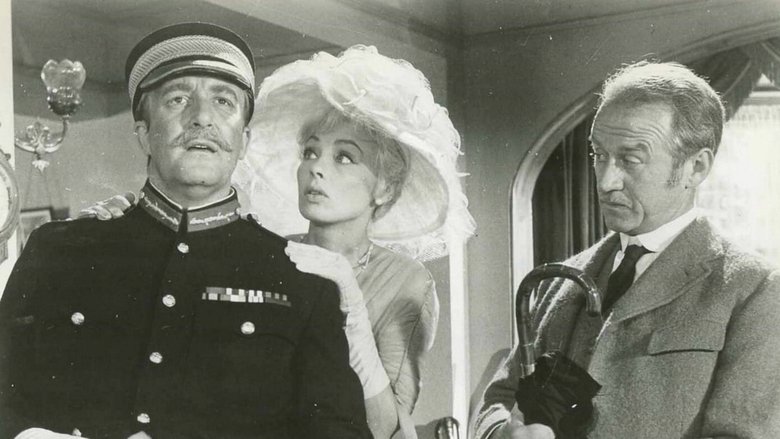
Waltz of the Toreadors (1962)
General Fitzhugh, an ageing Lothario has an over-active eye for a pretty woman. Despite a long and satisfying career as a seducer extraordinaire, something always seems to get in the way of his bedding the breathtakingly lovely Ghislaine, a more-than-willing town local.
Watch Trailer
Cast


Reviews
To me, this seemed like a one-joke kind of film where the joke isn't all that funny to begin with--certainly not enough to sustain a film. Peter Sellers plays a horny old general who has just retired from the British army circa 1908 or so. Over the course of the film, you learn that not only does he hate his wife but can't keep his eyes off other women. An old flame returns and you think they might run off together, but only moments later he's chasing some other tart. That is pretty much the entire film. Peter does a nice job imitating this sexual libertine and rotten family man who constantly tells his daughters they are stupid and ugly. While I guess his cruelty is supposed to be funny, I didn't particularly care for it.The bottom line is that the acting is just fine, but the script is not. There just isn't enough to support a movie and my interest wained about mid-way through the film.
Forgive me again for being very uninformative and nitpicky. I'm unfamiliar with the play ("disastrously translated into English setting and characters" - Halliwell's) and I sure as hell can't discuss the author's oeuvre.The photography is beautiful, if not entirely consistently so. I especially liked it during one of the heavier scenes involving Sellers and "wife".There are some ugly flashback transitions."Fawlty"-heads will see a pre-Sybil Scales, if paying enough attention...... which can be relatively hard at times.One notices how the actor who plays the innkeeper (John Glyn-Jones, further investigation shows) carries an enormous resemblance to the fine actor Richard Jenkins of "Six Feet Under" fame (or of "The Man Who Wasn't There" fame). Then, in his second and final scene, what is called out through some galloping if not "Mr. Jenkins!" Bizarre.John Le Mesurier seems to have been always reliable (by which I mean the few of his I've seen).Sellers's "old man" voice arouses in me questions as to why he was constantly cast in these senior roles (here, flashbacks, yes). Don't get me wrong, though. His performance is as great as you can expect from him."I'm old enough to be your aunt." Well, you don't look like it.The titular sequence is actually memorable.The ending I liked, which seems to be a common thing with viewers.I have trouble understanding what this eventually is. One minute, there's some silly umbrella fencing, and the next, grave discussion about things marital in nature. I can't really grasp the whole film. That's right, blame my age. But it is all over the place.At any rate, the film is worth a go. I didn't get these "masterpiece" vibes that others have gotten out of it, but if not for anything else, it's worth seeing for Sellers doing his thing.
Peter Sellers first successful dramatic role of any stature is as General Leo Fitzjohn in this version of the play by Jean Anouilh. Although a success in the military (we see over the years as he rose to his present rank) he was married to a woman who was bed-ridden due to emotional problems, and he was never quite able to carry out his lifelong romance with his French girlfriend. His wife (Margaret Leighton) is a shrew, but she is one who never stopped loving her unfaithful husband - so she will never give him the divorce he'd want. His mistress (Dany Robins) is attractive, and ever hopeful. Unfortunately she has met the General's adjutant, Lt. Finch (John Fraser), who she finds available and able to return her love. So this four sided parallelogram develops as the center of the plays plot.Sellers has had other affairs, all of which Leighton has had to live through. In one it turns out he had a child. Yet he is unable to break the chain linking him with this woman, who is both sympathetic and neurotic. He yearns and schemes to be with his mistress, but every time something (from a broken leg to a drinking contest) interferes. In the end he watches as he loses her, and he considers suicide. Sellers had never had such a sad character before. Maybe the alcoholic movie projector operator in "The Smallest Show on Earth" came closest, but he was not the central figure of that film. Sellers showed the depressing effects of aging on the general, once a gallant physical specimen. He is fully aware of his aging, and his failure to attain true happiness (just the temporary enjoyment of sexual pleasure). As he contemplates his mortality, and plans suicide he tells his closest friend (Cyril Cusack), "I don't want to die." But he can't prevent that inevitability.He did well with the role of Fitzjohn, and it paved the way for some of those bright figures such as his too Christian minister in "Heaven's Above", his triple roles in "Lolita" and in "Dr. Strangelove", and his final great part of Chance in "Being There". Fitzjohn was a taste of what was to come.
Based quite loosely upon a play of the same name by Jean Anouilh, this film has been designed not merely as a showcase for the oversize comedic talent of Peter Sellers, but also, due to excessive producer interference, as a sex farce where character predominates over language, after the manner of a well-wrought and linear work of theatre. A droll script by Wolf Mankowitz transposes the action from post World War II France to early 20th century Sussex, arranging the characters in the story-propelled manner of the playwright, whose intensive exploration of the spirit becomes increasingly prominent as the work runs its course, greatly assisted by sensitive performances from Sellers, as the libidinous General Leo Fitzjohn, and by Margaret Leighton as Emily, his suffering wife. The plot spirals about the freshly retired General Fitzjohn and his longwhile Gallic inamorata, Ghislaine (Dany Robin) who have, as seen in a series of flashbacks, never been able to complete their love, but who are apparently finally going to be able to do so; that is, if a series of latter-day obstacles might be overcome. The picture is directed smoothly by John Guillermin, and there are excellent performances from Cyril Cusack as Dr. Grogan, the General's best friend, and John Fraser as a naive subaltern assigned to Fitzjohn, while a magnificent score is contributed by Richard Addinsell, one of his best for the screen, notable for its unreserved use of a minor key to accompany romantic and comic events. Unlike his Absurdist contemporaries, Anouilh never abandoned a sense of existential despair throughout his dramas, and this production succeeds in creating tension between Fitzjohn's sense of loss of place and his ability to forge forward after his natural urges, as evidenced by the delicious ending.


